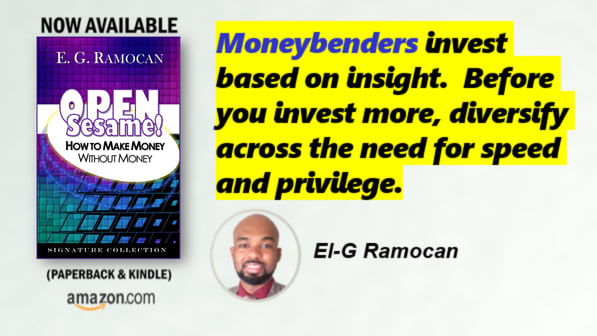What's Your Money Personality?
Get Ready to Discover Your Money Personality.
There are three money personalities: Moneyspenders, Moneykeepers and Moneybenders. Which one are you?
- Complete 20 questions at your own pace
- Uncover valuable insights about your money personality

When you receive unexpected money, what do you do?
How do you keep track of your budget?
What's your approach to credit cards?
How do you prioritize financial goals?
How do you feel about loans?
Rate 1 to 5: I often make purchases based on emotions or impulses.
Rate 1 to 5: I prioritize experiences and enjoyment over saving for the future.
Rate 1 to 5: I frequently treat myself and others with gifts or outings.
Rate 1 to 5: I am willing to take risks for short-term rewards.
Rate 1 to 5: Budgeting feels restrictive and takes the fun out of spending.
Rate 1 to 5: I save a significant portion of my income regularly
Rate 1 to 5: I avoid unnecessary risks and prefer stable financial strategies.
Rate 1 to 5: I actively ensure I have a financial safety net in order to feel secure .
Rate 1 to 5: I am cautious about spending money, even on non-essentials.
Rate 1 to 5: I prefer long-term financial planning over spontaneous purchases.
Rate 1 to 5: I actively seek out investment opportunities to grow my wealth.
Rate 1 to 5: I enjoy networking to expand my financial and business prospects
Rate 1 to 5: I adapt quickly to market trends and financial challenges.
Rate 1 to 5: I focus on creating multiple income streams.
Rate 1 to 5: I embrace calculated risks for higher returns.
Submit Email
You are a Moneykeeper
Moneykeepers are disciplined savers who prioritize financial security. They focus on creating safety nets and avoiding financial risks, often using their salary or income to build substantial reserves. Their cautious approach ensures stability but can sometimes hinder opportunities for growth.
Pros
1. Strong ability to save and manage money efficiently.
2. Lower likelihood of falling into debt.
3. A reliable safety net for emergencies.
4. Good at budgeting and financial planning.
5. Avoid unnecessary risks, protecting long-term stability.
6. Tend to be disciplined and methodical in financial decisions.
7. Provide a sense of financial security to their families.
Cons
1. Risk of missing investment opportunities by over-saving.
2. Tend to avoid calculated risks that could yield significant returns.
3. May limit their quality of life by being overly frugal.
4. Often hesitate to spend on experiences or personal enjoyment.
5. Can develop a scarcity mindset, fearing financial loss.
6. Limited flexibility in adapting to financial changes or crises.
7. Difficulty in balancing saving with enjoying earned money.
Moneykeepers save based on salary. You prefer to save your money for a secure future. Before you save more, invest in more income streams. To grow beyond just saving, learn to balance frugality with strategic investments. This means putting money to work rather than letting it sit idle.
- Invest Wisely: Transition savings into diversified investment portfolios.
- Automate Income Streams: Explore passive income avenues like dividend stocks or rental properties.
- Set "Enjoyment Goals": Allocate a portion of savings for travel or hobbies to avoid burnout from over-saving.
- Over-Saving: Avoid hoarding money without a plan for growth.
- Ignoring Inflation: Cash loses value over time; invest to preserve purchasing power.
- Fear of Risk: Embrace calculated risks to achieve financial freedom faster.
By understanding and optimizing your money personality—whether as a Moneyspender, Moneykeeper, or Moneybender—you can create a harmonious financial strategy that blends the strengths of all three. Each personality has unique strengths, and leveraging them effectively is key to achieving long-term financial success.
Final thoughts
As you improve as a moneykeeper, here are some final thoughts:
-
Structuring your savings into investments takes knowledge.
Knowledge that moneykeepers can learn and use to enhance their returns. Knowledge that either overcomplicates your life or provides unprecedented clarity. Talk to a licensed financial advisor about your specific financial goals. -
Investigate before you invest to avoid excessive risk-taking
Focus on prudent financial decisions and risk management. -
Be mindful of your relationships
Balancing financial decisions to maintain harmony emphasizes cautious wealth preservation. -
Practice self-reflection and continuous learning
Encourages awareness of attitudes toward wealth and careful management of resources.
Share your results with a family member or friend. Learn what their money personality is. Gain clarity on how to bend and blend the advantages of good moneyspenders, good moneykeepers and good moneybenders– in your favour.
WHAT TO DO NEXT:
- Join WhatsApp Channel- for Open Sesame quotes and updates.
- @MoneyWithoutMoney - Follow on Instagram.
- Buy the e-book directly from the Author.
-
Buy book on Amazon.com
- Explore more at moneywithoutmoney.com

You are a Moneyspender
Moneyspenders are individuals whose financial decisions are primarily driven by emotions and immediate gratification. They see money as a tool to enhance their lifestyle, often focusing on experiences, luxury, or quick solutions. While their spontaneity can lead to memorable moments, unchecked spending can also result in financial instability.
Pros
1. Enjoy life to the fullest and create unforgettable experiences.
2. Often generous, bringing joy to themselves and others.
3. Excellent at finding and enjoying leisure activities.
4. Tend to be adventurous and willing to take risks.
5. Quick to adapt to trends and enjoy new opportunities.
6. Foster strong social connections through shared experiences.
7. Boost the economy due to a higher propensity to consume.
Cons
1. Susceptible to emotional and impulsive purchases.
2. Struggle to save and invest for the future.
3. Risk of accumulating unnecessary debt and financial stress.
4. Often overlook the importance of long-term planning.
5. Can experience buyer's remorse or regret after impulsive decisions.
6. May sacrifice financial stability for short-term enjoyment.
7. Difficulty distinguishing between needs and wants.
Moneyspenders buy based on emotions. You love treating yourself and others with lavish expenses. But, before you spend more, outsmart your emotions.
To be a successful Moneyspender, practice mindful spending by pausing before making purchases. Ask yourself, “Does this align with my values and goals?” This helps balance living in the moment with securing long-term financial stability.
· Wait 24 Hours: Delay non-essential purchases for at least a day. Often, the impulse fades.
· Use the "Three Yes Rule": Before buying, ensure it aligns with three key priorities (e.g., health, joy, and long-term value).
· Shop Smart: Compare prices, use coupons, and consider second-hand options to make every dollar count.
· Emotional Spending: Don’t shop as therapy; find healthier ways to cope with emotions.
· Ignoring Budgets: Avoid financial chaos by setting clear spending limits.
· Overspending on Trends: Stay grounded and avoid chasing fleeting fads.
By understanding and optimizing your money personality—whether as a Moneyspender, Moneykeeper, or Moneybender—you can create a harmonious financial strategy that blends the strengths of all three. Each personality has unique strengths, and leveraging them effectively is key to achieving long-term financial success.
Final thoughts
As you improve as a moneyspender, here are some final thoughts:
-
Spending money is a behavior.
Behaviour that you need to be more aware of. Behaviour that either betrays you or builds you. -
Preserve humility and empathy
Recognizing the role of wealth in creating opportunities for others reflects a broader vision for money. -
Stay true to your values and purpose
Leveraging resources for greater societal and personal impact shows a transformative money approach. -
Avoid excessive materialism
Shifting focus from materialism to growth and contribution is characteristic of a Moneybender.
Share your results with a family member or friend. Learn what their money personality is. Gain clarity on how to bend and blend the advantages of good moneyspenders, good moneykeepers and good moneybenders– in your favour.
WHAT TO DO NEXT:
- Join WhatsApp Channel- for Open Sesame quotes and updates.
- @MoneyWithoutMoney - Follow on Instagram.
- Buy the e-book directly from the Author.
-
Buy book on Amazon.com
- Explore more at moneywithoutmoney.com

You are a Moneybender
Moneybenders are visionaries who leverage their financial insights to create momentum. They understand the art of turning challenges into opportunities and thrive on bending circumstances to their favor. For Moneybenders, scaling wealth is about insight, innovation, and leveraging networks.
Moneybenders operate within ethical boundaries but master the art of adaptation. They anticipate trends, manage risks, and capitalize on shifts to drive exponential growth. Moneybenders don’t bend the rules. They rule the bend.
Moneybenders thrive in dynamic, uncertain, and changing conditions. "The bend" symbolizes moments of transition, disruption, or opportunity—such as market shifts, technological innovations, or economic downturns. Instead of being thrown off course, Moneybenders anticipate these changes, adapt quickly, and position themselves advantageously to turn challenges into opportunities.
Pros
1. Keen on seizing and maximizing opportunities.
2. Prefers to build wealth through diversified and innovative strategies.
3. Resilient in the face of economic fluctuations.
4. Skilled at networking and leveraging connections.
5. Adaptable to changing markets and trends.
6. Create multiple income streams for financial independence.
7. Tend to inspire and lead others in financial ventures.
Cons
1. High risk of over-leveraging resources.
2. Potential for burnout due to high-pressure decisions.
3. Can neglect short-term security in favor of long-term goals.
4. Risk of being too optimistic, leading to poor decisions.
5. Susceptible to financial setbacks if risks don’t pay off.
6. Can struggle to delegate effectively, taking on too much responsibility.
7. May focus too heavily on growth at the expense of personal well-being.
Moneybenders invest based on insight. You're always looking for opportunities to make your money work for you. But before you invest more: weigh the unspoken, unwanted and the undervalued and research the runway between opposite trends.
Moneybenders should focus on refining their insight and balancing bold moves with calculated strategies. Embrace collaboration and diversify resources for sustained momentum. Moneybenders excel at spotting trends and pivoting strategies to take advantage of them. For example, during an economic downturn, they may invest in undervalued assets or innovate in emerging markets. They focus on understanding underlying systems (financial markets, business trends) and use this knowledge to navigate uncertainty effectively. They don’t waste a crisis. Rather than being reactive, they become proactive in charting a path forward for themselves and others, mastering the curve instead of being overwhelmed by it.
- Leverage Networks: Expand connections to access opportunities and expert advice.
- Diversify Investments: Balance between high-risk ventures and stable assets.
- Capitalize on Trends: Stay informed and agile to benefit from market shifts.
- Overconfidence: Avoid risky decisions fueled by overestimating capabilities.
- Ignoring Fundamentals: Focus on consistent cash flow, not just speculative gains.
- Neglecting Balance: Remember to prioritize personal well-being and security alongside wealth-building endeavors.
By understanding and optimizing your money personality—whether as a Moneyspender, Moneykeeper, or Moneybender—you can create a harmonious financial strategy that blends the strengths of all three. Each personality has unique strengths, and leveraging them effectively is key to achieving long-term financial success.
Final thoughts
As you improve as a moneybender, here are some final thoughts:
-
Scaling money is about momentum.
Momentum that moneybenders take advantage of like acquisitions, trends, crises and a wider network of growth. -
Preserve humility and empathy
Recognizing the role of wealth in creating opportunities for others reflects a broader vision for money. -
Stay true to your values and purpose
Leveraging resources for greater societal and personal impact shows a transformative money approach. -
Avoid excessive materialism
Shifting focus from materialism to growth and contribution is characteristic of a Moneybender.
Share your results with a family member or friend. Learn what their money personality is. Gain clarity on how to bend and blend the advantages of good moneyspenders, good moneykeepers and good moneybenders– in your favour.
WHAT TO DO NEXT:
- Join WhatsApp Channel- for Open Sesame quotes and updates.
- @MoneyWithoutMoney - Follow on Instagram.
- Buy the e-book directly from the Author.
-
Buy book on Amazon.com
- Explore more at moneywithoutmoney.com
